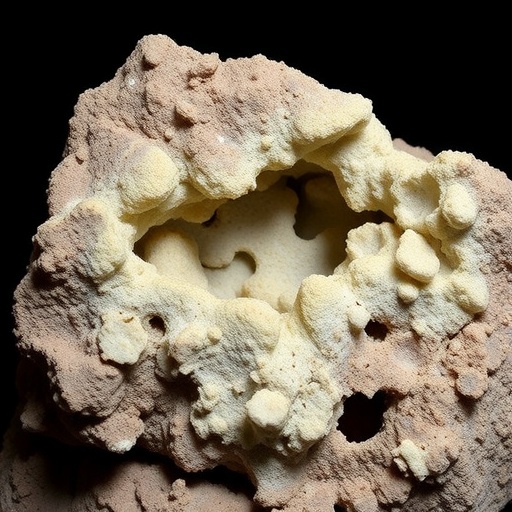Coral reefs are among the most biologically diverse ecosystems on Earth, serving as crucial habitats for numerous marine species, as well as functioning as natural barriers that protect coastlines from erosion. However, the health of coral reefs has been declining due to a variety of stresses, including climate change, ocean acidification, and human activities. Recent research conducted at Lizard Island in Queensland, Australia, provides insightful data regarding the physical processes of erosion and accretion of coral reef structures, specifically through a long-term study involving experimental blocks of Porites sp. This study, which spanned an impressive timeline of 10.6 to 20.3 years, sheds light on how these coral structures respond to both environmental pressures and opportunities for growth.
The research focused on deploying blocks made from Porites sp. skeletons to examine their stability and durability over extended periods. The Porites genus is critical in reef building due to its robust calcareous skeleton, which contributes significantly to reef structure and sediment production. By evaluating these blocks’ conditions over time, scientists were able to capture a dynamic narrative of coral reef health and resilience against continuous environmental challenges.
Through meticulous field studies, researchers observed net rates of erosion and accretion occurring on these coral skeletons. Erosion refers to the process where coral structures diminish due to mechanical and biological forces, while accretion denotes the building up or growth of these structures through skeletal deposition. The balance between these two processes is a frequent subject of scientific inquiry since it plays a pivotal role in determining reef resilience in the face of ecological pressures.
The methodologies utilized in this research included deploying multiple Porites sp. blocks at varying depths and orientations throughout the reef. This experimental setup allowed for comprehensive data collection regarding how different environmental conditions influenced both the erosion and accretion rates. Researchers continuously monitored these blocks, taking note of the biotic (organisms living on the blocks) impacts that may have contributed to the overall changes observed during the study period.
One of the noteworthy findings highlighted in the research was the role of bioerosion, a critical ecological process mediated by organisms that break down dead coral structures. Bioeroders, such as parrotfish, sea urchins, and various microbial communities, can significantly influence the net erosion rates observed on coral skeletons. Understanding this biological influence is essential for predictive modeling and conservation efforts dedicated to protecting these vital ecosystems.
Furthermore, the influence of environmental factors such as ocean temperature, acidification, and wave energy was also closely studied. For instance, higher sea temperatures have been correlated with increases in bioerosion rates as certain organisms become more active and efficient at breaking down coral materials. Conversely, periods of lower temperatures and stable environmental conditions were linked with increased rates of accretion, as these conditions are favorable for coral growth and recovery.
Additionally, this study underscores the importance of long-term monitoring in understanding coral reef dynamics. Short-term studies often overlook the prolonged effects of environmental fluctuations on coral health. This research highlights that both short-term disturbances and long-term trends are crucial for a comprehensive understanding of coral reef ecosystems. The insights gained can guide more effective management and conservation strategies aimed at mitigating negative impacts on coral reefs.
The implications of this research extend beyond just academic understanding; they offer tangible applications for reef management in a changing climate. By identifying which environmental factors contribute most significantly to erosion and accretion processes, stakeholders can focus their efforts on mitigating those pressures. This could be integral for developing strategies for restoration projects that aim to recover damaged reefs and enhance their natural resilience.
Public interest in coral reef conservation has surged in recent years, largely due to increased awareness of the potential extinction of these ecosystems if current trends continue. As society grapples with the realities of climate change, this study presents a call to action for both scientists and policymakers. Collaboration between these groups is essential to translate research findings into effective conservation policies that address both local and global challenges facing coral reefs.
A crucial aspect of future research will be to explore how these erosion and accretion processes might be altered with ongoing climate change. It is imperative to assess whether the patterns observed in Lizard Island are representative of other reef systems worldwide. Assessing variations across different geographies will provide a clearer picture of the global state of coral reefs.
As the findings from this research circulate through academic and public domains, it is anticipated that they will contribute to more informed discussions surrounding coral reef conservation. This research not only highlights the intricate interplay between various ecological forces acting on coral reefs but also emphasizes the pressing need to take preventative measures.
In conclusion, the study on Porites sp. skeletons at Lizard Island serves as a vital contribution to our understanding of coral reef dynamics. By addressing both erosion and accretion processes over extensive timescales, researchers present critical insights that can shape future conservation strategies. As the ocean continues to change, so too does the need for ongoing research to ensure that these breathtaking ecosystems continue to thrive for generations to come.
Subject of Research: Coral Erosion and Accretion Processes of Porites sp. Skeletons
Article Title: Net erosion and accretion of experimental blocks of Porites sp. skeleton deployed for 10.6 to 20.3 years at Lizard Island, northern Great Barrier Reef.
Article References:
Patterson, M.A., Webster, J.M., Chazottes, V. et al. Net erosion and accretion of experimental blocks of Porites sp. skeleton deployed for 10.6 to 20.3 years at Lizard Island, northern Great Barrier Reef. Coral Reefs (2025). https://doi.org/10.1007/s00338-025-02759-x
Image Credits: AI Generated
DOI: https://doi.org/10.1007/s00338-025-02759-x
Keywords: Coral reefs, Porites, Net erosion, Accretion, Lizard Island, Coral conservation, Marine ecosystems, Climate change




